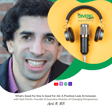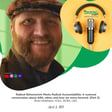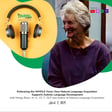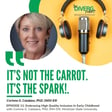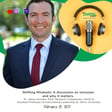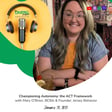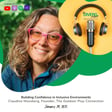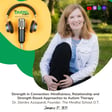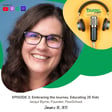
EPISODE 17: Parenting as Advocacy: The Radical, Reflective Work of Raising Neurodivergent Kids
In this very special episode of The DIVERG. Podcast, we’re hosting our first-ever panel—and the topic is one close to our hearts: Neuroaffirming Parenting.
Joining us today are three incredible parents and advocates who are leading voices in this space:
Leila Toigo (@SprinkledSpectrum) – Mother to an autistic daughter and passionate advocate for centering autistic voices in how we approach parenting and support.
David Coe (@DaDavidCoe) – Father to Asher and served as a board member of his local Regional Center in California. David brings a grounded, fatherhood-forward perspective to the conversation.
Elena Croy (@AtHerOwnPace) – Writer, advocate, and mom to a neurodivergent son and a daughter with Down syndrome. Elena works closely with NDSS, fighting for better resources and recognition for families in the disability community.
This panel is honest, hopeful, and full of life. Whether you’re deep in the journey or just starting out, you’ll walk away feeling seen, supported, and a little less alone.
Tune in for connection, community, and real-talk about what it means to parent with intention, empathy, and respect for neurodivergence.



